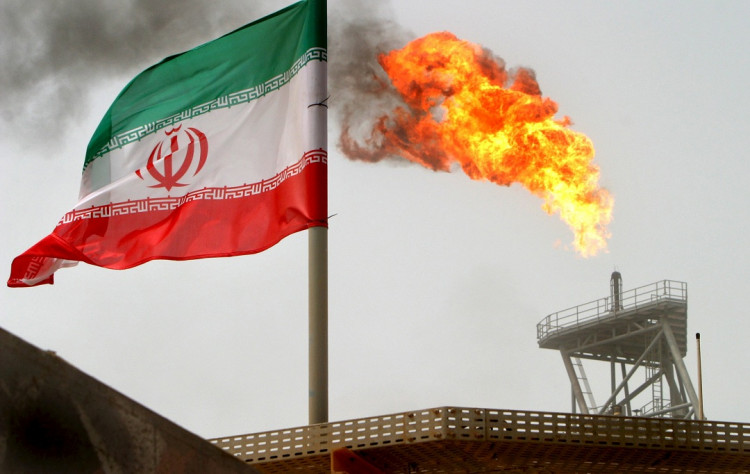Should the Israel-Palestine conflict escalate, it could lead to soaring international oil prices and a subsequent global economic downturn.
On Friday, Bloomberg Economic Research released its latest assessment, outlining the potential impact on the global economy and inflation under three distinct scenarios:
- Localized Conflict in Gaza: Hostilities remain primarily confined to Gaza and Israel.
- Proxy Warfare: The conflict spreads to neighboring countries like Lebanon and Syria, essentially becoming a proxy war between Israel and Iran.
- Direct Confrontation: Military tensions between Israel and Iran escalate into direct combat.
While all these scenarios result in higher oil prices, increased inflation, and economic slowdown, the extent varies. The broader the conflict's reach, the deeper its impact, and the actual risks might be even more extensive and intricate than the assumptions.
According to Bloomberg Economic Research, if more countries get involved, it could severely disrupt the global economy. In such a case, oil prices might skyrocket to $150 per barrel, global economic growth could drop to 1.7%, and the recession could reduce global output by about $1 trillion.
Scenario 1: Conflict Limited to Gaza
Under Bloomberg's first assumption, where the conflict doesn't spread beyond Palestinian territories, the impact on oil prices and the global economy remains minimal. The outcome might involve the U.S. imposing stricter sanctions on Iranian oil.
Previously, signs of thawing relations between the U.S. and Iran were evident with prisoner exchanges and asset unfreezing. Iran's oil production increased by up to 700,000 barrels/day this year. If this production disappears under U.S. pressure, oil prices could rise by $3-$4.
In this scenario, the global economic impact would be negligible, especially if Saudi Arabia and the UAE offset the loss in Iranian production with their spare capacity.
As Treasury Secretary Yellen mentioned at an IMF meeting, the Israel-Palestine conflict is unlikely to be a major factor affecting the global economic outlook, and the Biden administration doesn't rule out imposing new sanctions on Iran due to renewed Middle East tensions.
Scenario 2: Proxy Warfare
If the conflict extends to Lebanon and Syria, effectively becoming a proxy war between Iran and Israel, the economic cost will rise.
Bloomberg Economic Research highlighted the potential effects:
-
Oil: An escalation increases the likelihood of direct conflict between Israel and Iran, potentially driving up oil prices. During the 2006 Israel-Hezbollah war, crude oil surged by $5. A similar move today would increase oil prices by 10%, reaching approximately $94.
-
Economy: Combined, these factors could drag global economic growth by 0.3 percentage points next year, resulting in a $300 billion output loss. This would slow global growth to 2.4%, marking the weakest growth in three decades, excluding the 2020 COVID-19 outbreak and the 2009 global recession.
-
Inflation: Rising oil prices would also increase the global inflation rate by about 0.2 percentage points, keeping inflation around 6%. With disappointing economic growth, central banks worldwide might still have to maintain tight monetary policies.
Scenario 3: Israel-Iran Confrontation
Bloomberg Economic Research noted that while the likelihood of a direct conflict between Iran and Israel is low, it's the most perilous. An outbreak could trigger a global economic recession, soaring oil prices, a plunge in risk assets, and a significant inflationary step-up, severely hampering economic growth.
Hasan Alhasan, a researcher at the UK think tank International Institute for Strategic Studies, mentioned:
While no one in the region wants to see the Hamas-Israel conflict escalate into a full-blown regional conflict, including Iran, it doesn't mean it won't happen, especially in heightened tensions.
Under this scenario, Bloomberg Economic Research indicated:
-
Oil: With about a fifth of global oil supply coming from the Gulf region, oil prices would surge. While it might not double as in 1973, if Israel and Iran engage in direct combat, oil prices could rise similarly to the aftermath of Iraq's invasion of Kuwait in 1990. Given today's higher starting point, such a surge could push prices to $150 per barrel.
-
VIX Index: If Iran decides to close the Strait of Hormuz, even the spare capacities of Saudi Arabia and the UAE might not save oil prices. Financial markets would also witness a more extreme risk aversion shift, possibly similar to the 16-point spike in the VIX index in 1990.
-
Economy: Models predict that global growth in 2024 would drop by one percentage point, falling to 1.7%. Defining a global recession is challenging, but 1.7% would be the worst growth since 1982.
-
Inflation: Such a significant oil shock would also undermine global efforts to control prices, pushing the global inflation rate to 6.7% next year. In the U.S., the Federal Reserve's 2% target would become unattainable, and expensive gasoline could become a hurdle for Biden's re-election campaign.
However, the balance of probabilities still leans towards the conflict being contained, with limited impact on the economy and markets.






